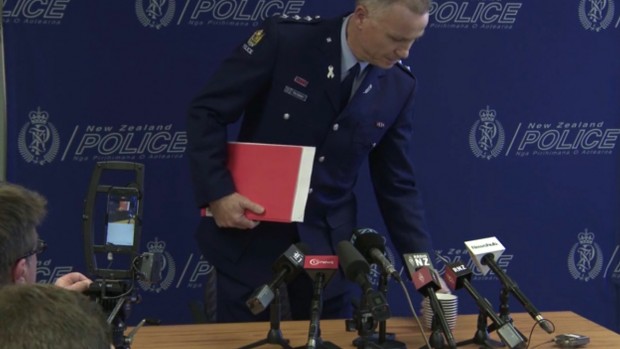October 28, 2016
False checkpoint targeting VE supporters part of investigation, NZ police confirm
A false police checkpoint set up by police to target euthanasia supporters is part of a police investigation into a suspected assisted suicide in June, police have confirmed.
Wellington Acting District Commander Paul Basham also confirmed that further deaths are being investigated as part of Operation Painter.
“When we become aware of information that people are contemplating suicide, we can’t look the other way,” he said.
The police took the rare step of referring itself to the Independent Police Complaints Authority (IPCA) yesterday.
Police earlier admitted that officers used the pretence of a drink-driving stop in Lower Hutt to collect details about elderly people leaving an Exit International meeting last month.
Using those details, officers then visited the homes of nine people who were at the meeting to question them about potential involvement in assisted suicide.
Police called a press conference in Wellington, where Basham said he wanted to “provide some context” to the controversial police actions.
Watch the Police Press Conference Here
He said a coroner advised the police that a toxicology report in August showed a person had died after consuming a Class C controlled drug.
The person was not suffering from a terminal illness and there were no signs that the death, which occurred in June, was suspicious.
“Aiding and abetting suicide is the principal focus of the police investigation,” Basham said.
Investigators had since identified several more suspected euthanasia cases, though police would not reveal the total number being investigated.
After the police became aware of the Exit International meeting, the drink-drive checkpoint was set up to collect details of the attendees. Nine people were later visited and given counselling and support.
Basham said the investigation and the checkpoint took place “in the interests of preserving life”. Police were obligated to investigate serious offences “regardless of the strength of feeling on the issue.” In an apparent reference to allegations of political interference – a law change around euthanasia is being considered by a select committee – he said police had no position on the issue.
Under questioning by reporters, he said the checkpoint was not planned in advance and was an example of police “thinking on their feet”.
He would not comment on the legality or illegality of the checkpoint while it was being reviewed by the IPCA. He also would not reveal who police took advice from on the unusual checkpoint.
Basham repeatedly underlined the seriousness of the case, telling reporters that aiding and abetting suicide was punishable by 14 years’ jail.
The district commander apologised, however, for an earlier police statement that committing suicide was “illegal” in New Zealand.
Basham said the comment was “regrettable” and clarified that only assisting suicide was an unlawful act.
Privacy Commissioner John Edwards said he intended to look further at the Police actions, either assisting the IPCA or undertaking his own inquiry.
“I’ve found some of the revelations about Police actions in relation to the euthanasia matter concerning. There are a number of aspects.
“I’ve heard suggestions that the purpose of the collection – the stop – was misrepresented to individuals. Now I take a pretty dim view of collecting information under false pretences. If that were the case I would be pretty concerned and would want to clarify my expectations for the Police and for the public.”
